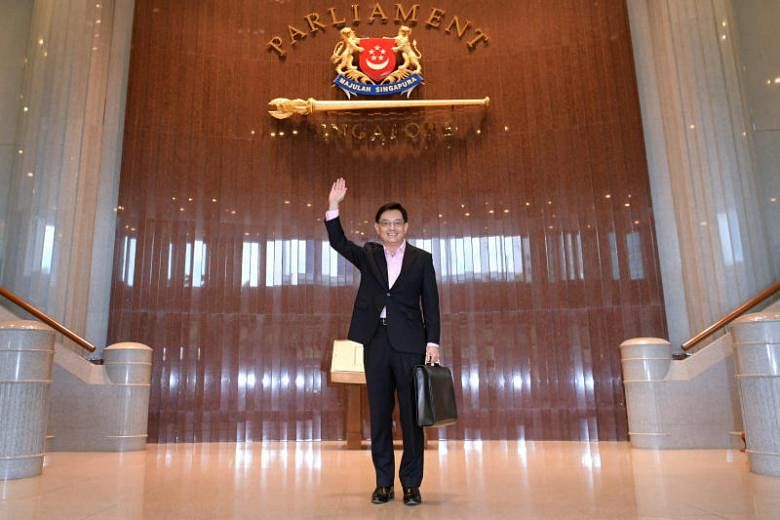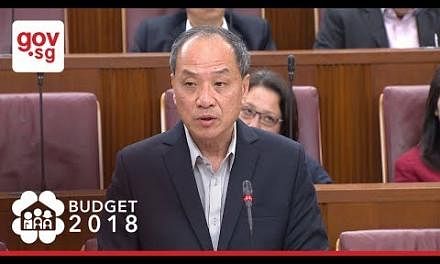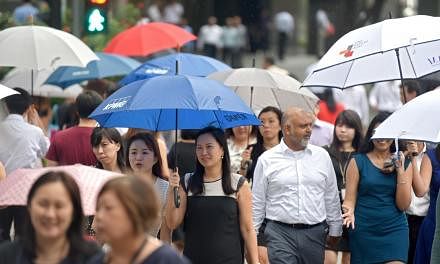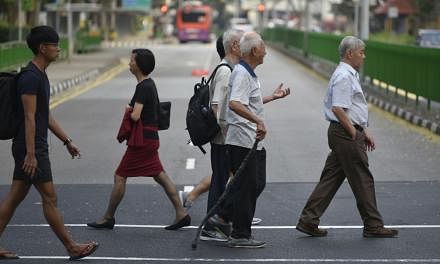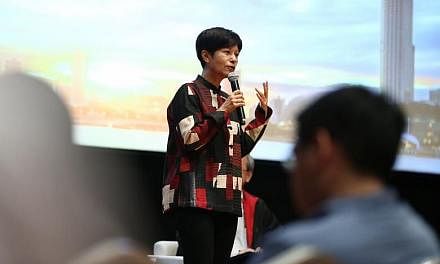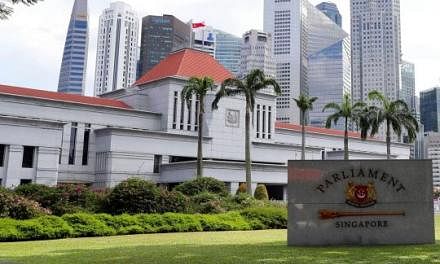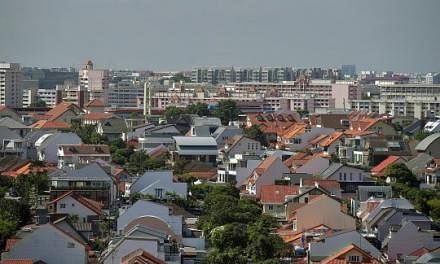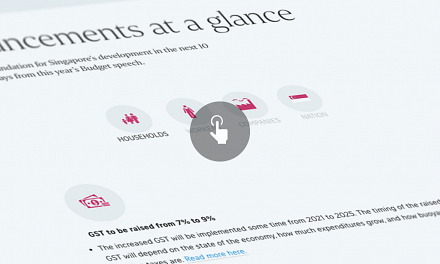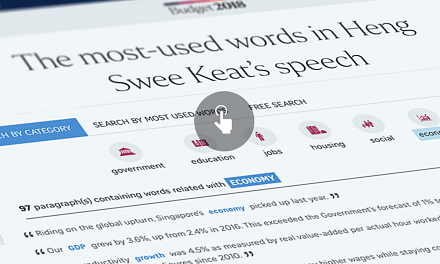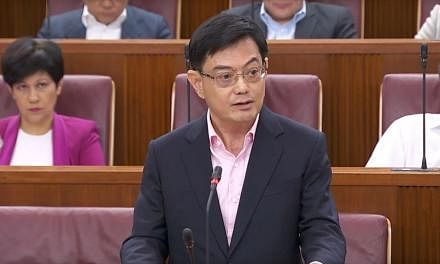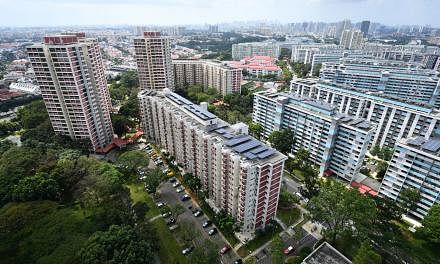In his Chinese New Year message, Prime Minister Lee Hsien Loong emphasised the need to both honour Singapore's seniors and nurture the young. The message reflected the Government's continuing attempts to balance the needs of both the old and the young.
Watching the Budget speech from the public gallery in Parliament on Monday (Feb 19), I saw how Finance Minister Heng Swee Keat sought to realise this balance. It was an interesting experience: A young person watching a Budget constructed against an ageing society (one of three key shifts outlined by Minister Heng at the start of his speech). Several thoughts came to my mind.
Fairness is irrelevant
"Is it fair that I pay for the needs of another generation?" is a question which will flash across many young people's minds as they read about the Budget. Some will feel that it is not. In the Institute of Policy Studies (IPS) Survey for Singapore Perspectives 2018, more than a third of Singaporeans aged 20-34 agreed with the view that "each generation should take care of itself, without the need to be supported by other generations".
These respondents may question why the elderly of today were not able to attain adequate retirement arrangements for themselves in their active years.
However, fair or not, the needs of an ageing population must be met, primarily by the working population of today. This is why the question may be irrelevant - arguing about fairness does not change the outcome. Given this, young people should consider the following points.
First, inter-generational solidarity works both ways. To those who do not desire to support the older generation, consider that they themselves have in fact been supported by this very generation many times over. Would young people have been able to enjoy the quality education, the vibrant economy, the high-paying jobs Singapore has to offer if not for the value and revenue generated by the work put in by those who came before them? Paying more to support the elderly is merely a form of giving back.
Second, paying more now would mean paying less in future because it prevents additional problems arising in future which would require even more revenue-raising. Consider a scenario where the Government does not spend enough to meet the needs of an ageing population today or even actively prioritises the young over the old. What happens? Healthcare infrastructure will be inadequate, causing the elderly to not have adequate provisions for healthcare. This will result in worsening or lack of early detection of illnesses. Such occurrences on a national level may trigger a crisis for an inadequate healthcare system, causing the working population to have to shoulder an even heavier financial burden in future.
Another example: Suppose the Government does not spend on measures to expand employment opportunities for older workers (for instance, raising the re-employment age, introducing the Special Employment Credit, enhancing WorkPro to redesign jobs for older workers, and so on). This will cause a rapid acceleration in the decline of the resident labour force, which means an even smaller working population supporting an even larger non-working elderly population in future. If payment is inevitable, then it should be done sooner rather than later to prevent the problems of today from becoming the crisis of tomorrow.
Common interests
Although the needs of the young and old in some ways represent competing demands on limited finances, they actually share common interests. This is a point young people should think about.
First, policies to improve the healthcare infrastructure and social safety net today will not just ensure better care for today's elderly but also ensure that a proper system is put in place to meet the needs of tomorrow's elderly.
Although more top-ups will be needed to maintain these systems, the fact that these systems would already be in place will make things a lot easier for the elderly of tomorrow. Young people are in fact indirectly contributing to their own future care.
Second, both the interests of the young and old can only be met if there is a growing economy. For the needs of young people to be met, such as education, jobs and housing, the economy must continue to remain vibrant for adequate revenue to be generated. As Minister Heng said, "Our fundamental strategy is to grow our economy. With a strong economy, we will have more resources with which we can meet the needs and aspirations of our people."
Young people should see measures to meet the needs of the elderly as a means to this end. Government policies to ensure the employability of older workers help reduce the slowdown in resident labour force growth, giving Singapore more time to raise productivity. In the meantime, for older workers, their years of experience can prove valuable in helping firms - and thus the economy - grow.
The economic importance of the family
The family is an economically important societal entity. Strong families are the bedrock of national fiscal sustainability. If the family abandons its responsibility to care for its aged members, the Government will have no choice but to step in, leading to greater spending and thus revenue-raising.
Ultimately, even as the Government spends more to help the elderly, families will take primary responsibility in meeting their day-to-day needs and helping them age gracefully.
For the many young people who have just started their families, this is a key point to bear in mind - that rising Government involvement in healthcare does not mean falling family involvement. As Minster Heng remarked, rising amounts of healthcare and social expenditure will place "greater demands on families and the Government". Although not immediately obvious, this is also precisely the reason for the measures announced to strengthen support for families, such as the Enhanced Proximity Housing Grant to encourage singles and couples to live near or with their parents.
A better future for all of us
Mr Heng ended his speech by emphatically stating, "Together, we can make a better future for all of us." This final emphasis on togetherness is more than just a nice conclusion; it also highlights the fact that all Singaporeans are on this journey together. Young or old, we are in this together.
Rifts between the young and old have surfaced in far too many societies - Singapore cannot be one of them. Post-Budget 2018, I hope all young Singaporeans take time to reflect on it, not just what the policies are, but what they stand for.
Ng Chia Wee, 20, recently completed his full-time national service and will begin his undergraduate education at the National University of Singapore's Faculty of Arts and Social Sciences in August.
